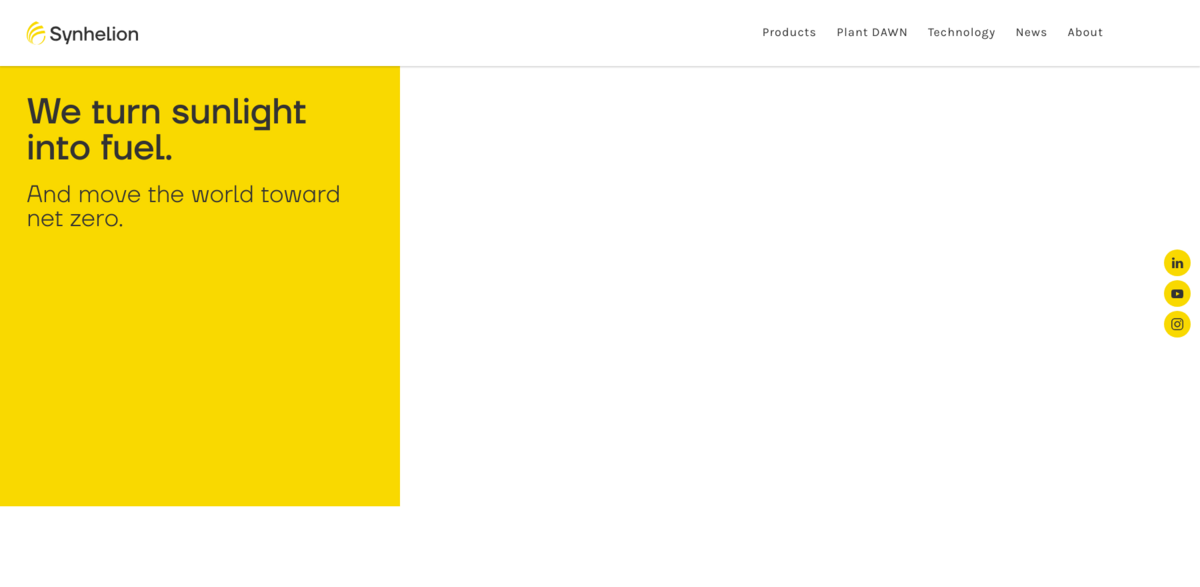What is Synhelion and Its Revolutionary Solar Fuel Project?
Synhelion is turning sunlight into fuel and pushing the world toward net zero. This innovative company produces solar fuels designed to defossilize the transportation sector. By creating solar jet fuel, diesel, and gasoline, Synhelion enables a direct replacement of fossil fuels. Their sustainable solar fuels close the carbon cycle, meaning they only emit as much CO2 as was absorbed during their production. Plus, these fuels are fully compatible with existing global fuel infrastructure, making the transition smoother than ever.
Main Benefits of Synhelion’s Solar Fuels
Synhelion’s approach offers a range of impressive benefits that make it a game-changer in renewable energy:
- Reduces CO2 emissions by up to 99% compared to fossil fuels
- Produces fuels fully compatible with current engines and fuel infrastructure
- Scalable technology deployed in the world’s first industrial-scale solar fuel plant
- Targets difficult-to-electrify sectors like aviation and shipping
- Uses abundant, cheap solar energy as the primary resource
- Aims to reach production costs below EUR 1 per liter
- Enables sustainable transportation without engine or infrastructure modifications
How Synhelion’s Solar Fuels Work
Synhelion’s solar fuels are synthetically produced to mimic the chemical and physical properties of fossil fuels. This means they can be blended with traditional fuels or used pure in conventional aircraft, ships, trucks, and cars. The magic lies in using solar energy to power the entire production process, making these fuels not only sustainable but also economically viable. The fuels maintain a high energy density, allowing for easy transport and long-term storage without losing quality. It’s a neat solution that ticks all the boxes for industries that rely heavily on liquid fuels.
Scaling Up for Global Impact
The company’s technology is no longer just a concept—it’s proven and de-risked, already operating at industrial scale. Synhelion is now focused on scaling this technology worldwide to revolutionize sustainable transportation. The goal? To make solar fuels a mainstream alternative that can meet global fuel demand. By leveraging the sun’s power, which is abundant and well-distributed across continents, Synhelion is paving the way for a cleaner, more autonomous energy future. Shorter transportation routes and independence from fossil resources add even more value to this approach.
Why Solar Fuels Are the Future
Solar fuels offer a unique combination of benefits that make them stand out:
- Same chemical structure as fossil fuels, ensuring compatibility
- No need to adapt engines, refineries, or fuel stations
- Economical production using one of the cheapest renewable energy sources
- Environmentally friendly lifecycle with reduced CO2 and noxious gas emissions
- High energy density for efficient storage and transport
- Scalable to meet global fuel demands
In short, solar fuels are not just a green alternative—they’re practical, efficient, and ready to power planes, cars, ships, and trucks sustainably.
Impact on Sustainable Development Goals (SDGs)
- SDG 7: Affordable and Clean Energy – by providing renewable solar fuels
- SDG 9: Industry, Innovation, and Infrastructure – through pioneering solar fuel technology
- SDG 11: Sustainable Cities and Communities – enabling cleaner transportation
- SDG 12: Responsible Consumption and Production – by closing the carbon cycle
- SDG 13: Climate Action – significantly reducing CO2 emissions in transport
- SDG 14: Life Below Water – by reducing marine pollution through cleaner fuels
- SDG 15: Life on Land – supporting ecosystem health by cutting fossil fuel use
Synhelion’s Role in Defossilizing Transportation
Transportation is a massive contributor to global CO2 emissions—about 8 billion tons per year. Synhelion is tackling this head-on by focusing on sectors that are tough to electrify, like aviation and shipping. While road transport is increasingly electrified, many internal combustion engine vehicles will remain in use for decades. Synhelion’s solar fuels provide a complementary, sustainable solution to power these vehicles and help meet net-zero targets by 2050. It’s a smart, forward-thinking approach that blends innovation with practicality, making clean mobility achievable on a global scale.






















